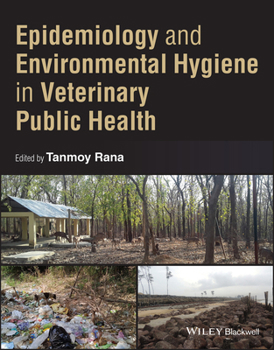Epidemiology and Environmental Hygiene in Veterinary Public Health
Understand the emergence and progress of zoonotic diseases
Veterinary epidemiology is the study of the connection between animal exposure to chemical or disease agents and the observation of adverse effects. Veterinary epidemiologists observe the patterns by which diseases emerge in a population and play a crucial role in controlling emerging disease outbreaks and preventing infections. The major factors in environmental hygiene which have a tendency to produce disease and adverse health effects in animals require extensive study and play a potentially massive role in public health.
Epidemiology and Environmental Hygiene in Veterinary Public Health provides a one-stop reference for professionals in this vital field. Its exploration of environmental illnesses and pollutants in combination with biological disease vectors has no current rivals in the marketplace. With readable design and coverage of all major factors of epidemiological significance, the volume offers a unique contribution to the control of animal disease.
Epidemiology and Environmental Hygiene in Veterinary Public Health readers will also find: Schematic overview of the fundamentals of environmental hygiene and epidemiology Detailed discussion of topics including etiological factors, preventative and control strategies, major disease agents, and many more Color figures, line figures, and tables to illustrate key concepts
Epidemiology and Environmental Hygiene in Veterinary Public Health is ideal for all professionals and researchers in animal epidemiology and environmental hygiene, as well as for farm managers, agricultural veterinarians, and other professionals involved in large-scale animal care.





